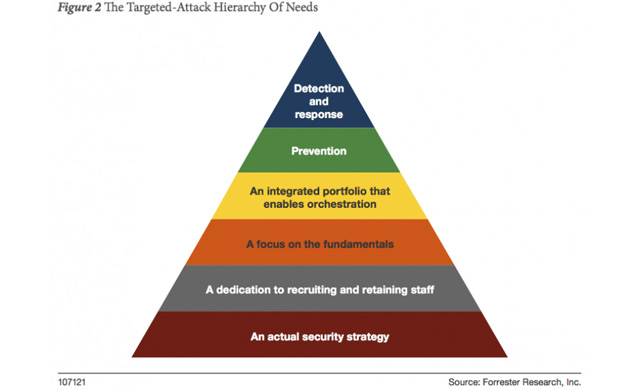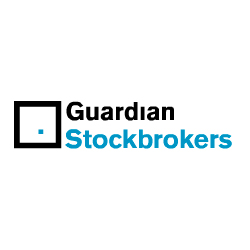In 2019, Americans are more afraid of becoming a victim of cybercrime than becoming a victim of violent crime and, considering the bleak picture of cybercrime statistics, their fear is entirely justified.
Cybercrime rates are at an all-time high. In January 2019 alone, over 1.7 billion records were leaked. A hacker attack takes place every 39 seconds and 230,000 new malware samples are produced every day. Businesses are the main target. According to the latest estimates, ransomware will cost organizations $11.5 billion this year, and, although hackers don’t neglect any sector, traders and financial institutions take the highest cost from cybercrime.

Recent research reveals that nearly all of the 40 major online trading platforms don’t have extensive security measures in place and less than half of them use data encryption for traders’ sensitive information. Hacking and data theft are major risks for any business, but in a field like trading, failing to keep trading machines secure can lead to debilitating losses. 95% of traders use Windows to execute their trades, which is why it’s important to take relevant security measures that prevent hackers from easily accessing your information. According to the Hong Kong Securities and Futures Commission (SFC), these are the most important steps to follow in securing your trading machines:
1. Never miss a security update
Postponing Windows updates can be tempting, especially when you’re having a busy day, but to avoid becoming a victim of cybercrime, you should install security updates as soon as they’re available. Every OS has its flaws and the problem with hackers is that they learn to exploit these flaws in record time. Most malware attacks occur because a malicious party took advantage of vulnerabilities in Windows or common Windows applications, so installing security patches is crucial for your security.
Tip: Avoid installing pre-release versions of updates. Trading is not the best field to be a beta tester, because these updates are usually unstable, they have bugs, and this can put you at risk.
2. Install a firewall and antivirus
Using a computer without a firewall and an up-to-date antivirus is like inviting hackers to steal your data. These security measures should be active at all times and you shouldn’t wait until you notice the obvious signs, such as lagging, freezing, or suspicious pop-ups. Hackers can do a great job at covering their tracks and, in many cases, users notice they’ve been hacked when it’s already too late. On average, it takes companies 206 days to discover a data breach and, by that time, the damage is already done. A firewall and anti-virus are your first line of defense against hackers, so you shouldn’t begin trading until you have these installed:
Tip: Although there are free anti-virus tools available on the market, they only have limited features that don’t cover all the security needs of a trading company. To keep your data safe, always invest in the premium version.

3. Install a VPN
Unlike a regular Internet Service Provider (ISP) connection, where the data between your machine and the destination site can easily be accessed, a VPN connection encrypts all your data and prevents it from getting into the wrong hands. If you’re a trader, you should definitely download a VPN for your Windows PC, because data is your most valuable asset and recovering after a data breach and can set your business back months. VPN also prevents your Internet Service Provider from spying on you and allows you to access your information remotely.
4. Hire a cybersecurity expert
Although hiring a cybersecurity expert may sound a bit excessive, they are a crucial asset for any trading company. System updates, firewalls, and antivirus software are helpful, but you still need someone to constantly monitor your machines. Unfortunately, new threats appear every day and, unless you’re an expert in security, you won’t be able to keep up yourself. A cybersecurity expert will make sure your Windows computers are protected every single day, installs new software when necessary and, most importantly, helps your company recover from a data breach, if it occurs.
5. Secure your Wi-Fi network
According to a Kaspersky study, a quarter of all Wi-Fi hotspots don’t use any security at all. Additionally, most business owners set up their Wi-Fi networks without taking extra security precautions. To reduce of risk of unauthorized parties connecting to your network and accessing your data, use the WPA2 encryption protocol and change your password regularly. As a trader, you don’t need clients to connect to your private network, so you can disable the WPS option too.
6. Invest in cybersecurity training for your employees
Although brute force attacks are the main cause behind data breaches, poorly secured machines aren’t always what makes your company vulnerable. As cybersecurity experts point out, the human factor is becoming an emerging problem for companies. Employees who haven’t been trained on the right security protocols and don’t follow recommended practices may just as well become an internal risk. In fact, 46% of all cybersecurity incidents in 2017 happened because an employee contributed to the attack. Even when all your systems are up to date and you use state of the art anti-malware tools, you should still train your traders to follow the best security practices:
- Recognize suspicious emails, links, and attachments
- Don’t install third-party trading software that wasn’t authorized by the company
- Don’t use company systems for personal reasons
- Don’t share sensitive trading data online
- Create strong passwords and change them regularly
7. Deploy a PAM strategy
Privileged Access Management (PAM) is a set of security solutions that let you control and restrict access to privileged accounts within an existing Active Directory Environment on Windows. This way, only the personnel you authorized can access admin accounts and, for the others, you can create temporary accounts. According to IBM, more than half of all cyberattacks start because of an administrator who had privileged access to the company’s systems, so it’s very important to be more restrictive.
Tip: As part of your PAM strategy, you can also apply POLP (Principle of Least Privileged), which means that employees only receive only the minimum permissions to do their job.
Rising cybercrime rates can look scary for traders, but by securing your machines and keeping your employees up to date with the latest security precautions, you can reduce the risks of malware attacks and data breaches considerably.

 Hot Features
Hot Features











